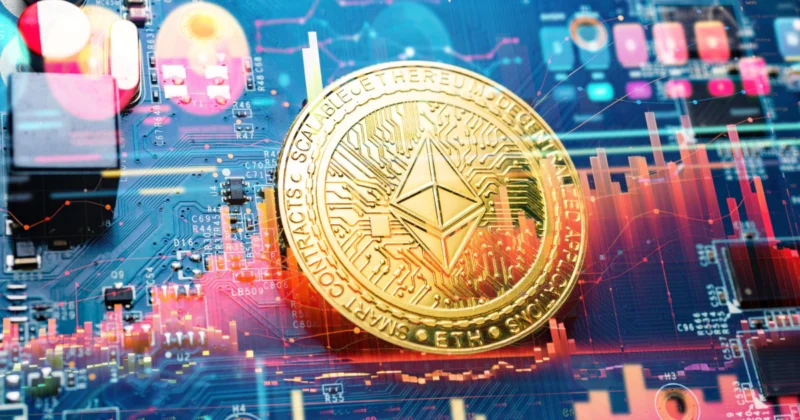More and more people are turning to digital currency for big investments, including financing their properties. Bitcoin and Ethereum have opened the door to faster, easier transactions, which are increasingly attractive financial methods.
Dubai is one of the few places where buying property with crypto is legal and regulated. The good news is that you don’t need a UAE bank account or residency to get started. But there are a few things you need to know to make your purchase smooth and safe.
Let’s break down everything so you can feel confident and ready to make your dream investment.
What you should know about crypto property transactions in Dubai
Dubai has clear rules for buying property with cryptocurrencies. These rules protect buyers and keep transactions transparent. The Dubai Land Department (DLD) and the Virtual Assets Regulatory Authority (VARA) ensure that crypto property transactions are done correctly.
Many major developers and agencies in the city accept cryptocurrencies. Popular coins include:
- Bitcoin (BTC)
- Ethereum (ETH)
- Tether (USDT)
- Binance Coin (BNB)
- Ripple (XRP)
It’s important to note that most of these deals don’t happen directly in crypto. Your digital assets are usually converted into AED (UAE dirhams) through licensed OTC (Over-the-Counter) platforms or exchanges. This conversion helps keep the process safe, legal, and smooth and ensures the seller gets paid in local currency.
Since you don’t need a residency visa or bank account to buy property in Dubai, you can easily invest as an international buyer.

Step-by-step guide to buying property with cryptocurrency
Let’s break it down step by step.
Step 1: Choose the right property
Start by finding a property that suits your goals. Consider your budget, location, and whether you want to live in or rent it out.
Make sure the developer or agency accepts cryptocurrency. Some of the well-known names that do include:
- Emaar Properties
- DAMAC
- Binghatti Developers
- Select Group
- Fam Properties
You can visit their websites or contact them directly. Before proceeding, it’s worth asking specific questions about their crypto payment options.
Step 2: Verify crypto acceptance and payment methods
Once you find a property you like, confirm which cryptocurrencies the developer accepts. Most accept Bitcoin, Ethereum, and stablecoins like Tether (USDT).
Ask how the payment will be processed. You’ll usually send your crypto to a secure wallet. From there, a licensed OTC partner converts it into AED before the payment goes through to the developer.
So while you’re technically paying in crypto, the seller receives dirhams. This keeps everything aligned with UAE regulations.
Step 3: Prepare your documents and meet legal requirements
To meet legal requirements, you must complete KYC (Know Your Customer) and AML (Anti-Money Laundering) checks. Here’s what you’ll typically need:
- A valid passport or official ID
- Proof that you own the crypto funds you plan to use
- Documents showing where your crypto assets come from
You’ll be asked to disclose where your crypto came from. This might sound complicated, but it’s a standard step. Licensed developers and partners can help you through it.
Step 4: Make your crypto payment and finalise the deal
After your documents are ready, you can begin the payment process. You’ll transfer your cryptocurrency to the developer’s wallet or the designated platform. It will then be converted to AED and passed on as a standard property payment.
Once the developer confirms receipt, you will sign the Sale and Purchase Agreement (SPA). After the deal is finalised, the title deed is issued in your name. You’re now the legal owner of a Dubai property.
This process can be much faster than traditional payments. Sometimes, it takes just a day or two.
Step 5: What happens after you buy property with crypto?
Owning property in Dubai as a foreigner is a straightforward process. You don’t need a residency visa or a UAE bank account. Once the property is yours, you can:
- Live in it
- Rent it out
- Sell it later for potential profit
And the best part? There’s no capital gains tax on property sales in the UAE. Just make sure to check the tax laws in your home country. It’s always smart to speak to a qualified tax advisor.

Advantages and potential risks
Using cryptocurrency to buy property has many benefits:
- Speed: Crypto transactions can settle in a day or two.
- Lower fees: They are often cheaper than banks and international transfers.
- Transparency: Blockchain technology offers secure and transparent transactions.
- Accessibility: You don’t need a local bank account or residency visa.
- Global reach: Investors worldwide can easily enter Dubai’s property market.
Still, there are risks you should know about:
- Volatility: Crypto prices can shift quickly.
- Compliance: Regulations may change, so it is important to stay informed.
- Availability: Not all developers accept crypto yet.
Still, many buyers feel the advantages outweigh the risks, especially if you plan well and use trusted platforms.
Taxes, fees, and legal advice you should consider
- Dubai has no capital gains tax on property. That’s great news for you as an investor.
- Crypto transactions often have lower fees than traditional bank transfers. However, network fees and exchange charges still apply.
- Always talk to a professional tax advisor. They can help you understand any tax obligations you have in your home country.
- All transactions must comply with Dubai’s rules. Working with licensed partners will keep everything legal and secure.
Comparison: buying property with crypto vs traditional methods
| Feature | Crypto purchase | Traditional purchase |
| Accepted currencies | BTC, ETH, USDT, etc. | AED, USD, other fiat |
| Transaction speed | Fast (same/next day) | Slower (bank processing) |
| Bank account required | No | Yes |
| Intermediaries | Minimal (crypto platform/OTC) | Banks, brokers |
| Regulatory oversight | VARA, DLD, AML/KYC | DLD, bank, AML/KYC |
| Price volatility | High (crypto markets) | Low (fiat) |
Key takeaways
- You can legally buy property with cryptocurrency in Dubai using licensed partners and following local rules.
- Major developers accept popular cryptocurrencies like Bitcoin, Ethereum, and Tether, but you must complete KYC and AML checks first.
- You don’t need UAE residency or a local bank account to buy property with crypto as a foreign investor.
- Crypto transactions are fast, secure, and often cheaper than traditional methods. However, price volatility can affect your investment.
- Always speak to a legal or tax advisor before you buy.
- The laws in your home country may still apply.
FAQs
Major developers widely accept Bitcoin, Ethereum, Tether (USDT), Binance Coin, and Ripple (XRP).
Yes, non-residents can purchase property without a UAE bank account or residency visa.
The documents required are passport, proof of crypto funds, and KYC/AML documentation completion.
No capital gains tax in the UAE; transaction fees are generally lower than traditional payments, but check your home country’s tax laws.